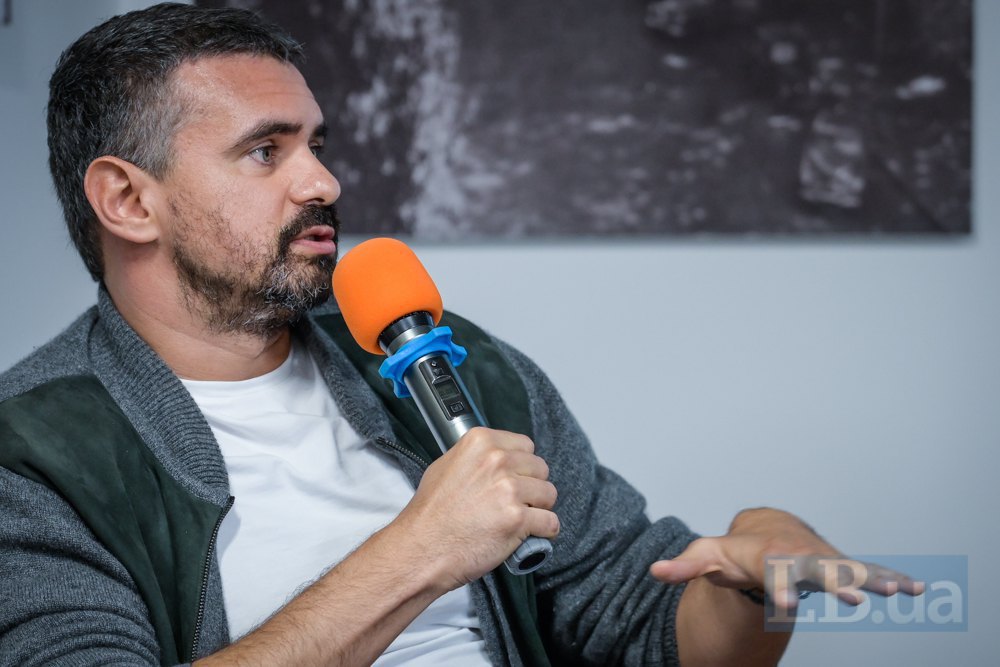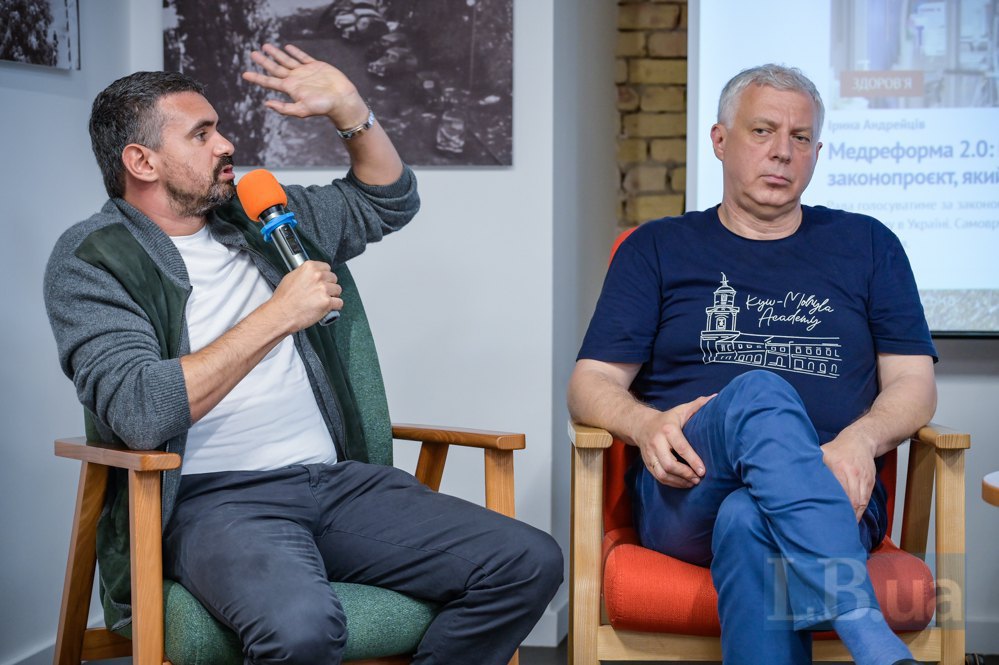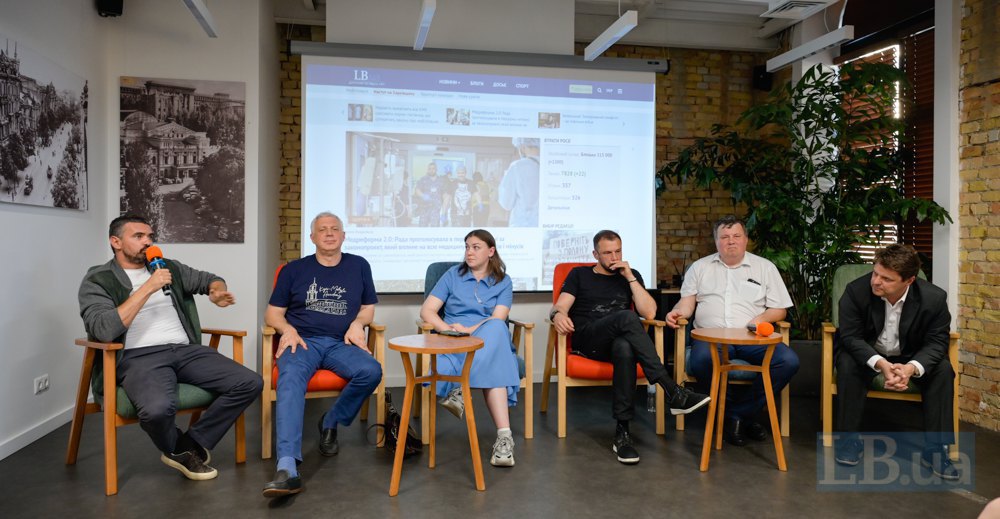
"The first demand of society is why do we need education at all? How does it help us defeat the enemy? If we are spending billions of hryvnyas on inefficient institutions that simply produce evaders?
Where are the technologies, where are the innovations that should be born in universities? Where is the interaction with military units? I heard here that we want to be a miltech centre in 10 years. But what are we doing for this? Forget about your reforms that have been going on for 10 or 15 years. We are not interested in this. We are wondering where the billions [allocated for education] are going to 140,000 postgraduate students (this year, 140,000 people registered for the postgraduate exam instead of the pre-war five, and another 100,000 are planning to enter the master's programme - Ed.) We will get to the point where we discredit higher education as a class. Anyone who understands the importance of education will simply take their children out," said Ihor Liski. He noted that the discussion of "Let's spend this money on drones" is not unfounded and has moved from the margins to social media.
"Let's be cynical and honest: Europe and the United States are interested in our young people - educated, well-mannered. We will never get it back with this approach. With such a reform for the sake of reform.
We have to meet the challenges today, because there will be no country left. Either there will be no people we need. They will simply leave and never return. I'm not saying that we should turn this army of 1.1 million students and hundreds of thousands of teachers in a different direction so that they do not produce evaders, do not use up budgets, and do not hold on to incomprehensible university "plates". Who needs them? In a country where hundreds of people die for their homeland every day, who needs these plates? Who should have the political will?" said Liski during the discussion.
The businessman suggested changing the focus of education reform and clearly defining the customer of educational services.
"For whom do you work in general?" Liski addressed educators, "Not for yourselves. Not so that students can be autonomous and teachers can feel good about their profession. This is also important. But you do have a customer. Unfortunately, the customer is an inefficient state. Either we have to tell this state to formulate orders differently, because we feel that we are going the wrong way. Or go to business, which is actually your main customer. The Armed Forces of Ukraine are your customer".
Today, the EFI Group Supervisory Board Chairman emphasised, there is no communication with educational institutions regarding training. Sometimes they have to be imported from abroad.

"For example, I employ 6,000 people. I am not the biggest business, but last year I paid UAH 700 million in taxes. I know that most of these taxes were spent on maintaining inefficient universities. I would at least be asked, 'Who are we going to graduate?’
Right now I want to build a glass production plant. Who will give me these specialists? There are none. And Ukraine will never have such a plant unless I bring people from Azerbaijan again," the businessman stressed.
In his opinion, 90 per cent of education workers are indifferent today because of the established system in the country.
"I know that we are doing a lot of things, that we are hitting the wall, and maybe in two more generations we would have built this system. But we do not have this time," said Ihor Liski.
In order to change the approach to education reform, we first need comprehensive communication that would give a clear understanding of what kind of country we are building, what we want it to be like in 10-20 years, what place it will occupy in Europe, in the global economy, what kind of graduates, knowledge, even innovations are needed for this.

"And there are two approaches here. First. If universities are state institutions, then this should be a state policy. I do not believe in this. But at least, as in Soviet times, there would be minimal planning.
The second approach is, conditionally, American. The state orders a little bit of the military, but most of it is ordered by business and society. I said that I decided to build the glass industry at my own expense. I understand that I need the first, second, and third. And it's better not to catch up with the Germans, French, Japanese, Americans, but maybe give me some innovation here. Maybe something else. I would be the customer. The conditional me.
I would like to see us not stagnate and not reform educators for educators. So that we can develop and see where we are going. Although I support all tactical or administrative reforms. I definitely support financial independence [of universities ]. Without this, we cannot even measure the effectiveness of the university. This is the beginning of a different approach to education," the businessman explained.








